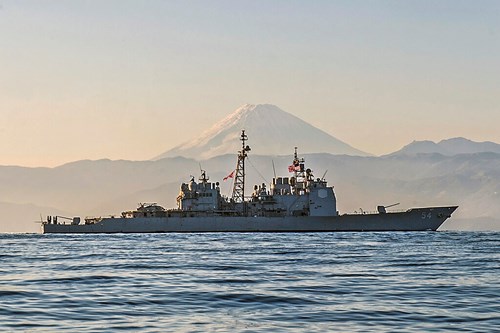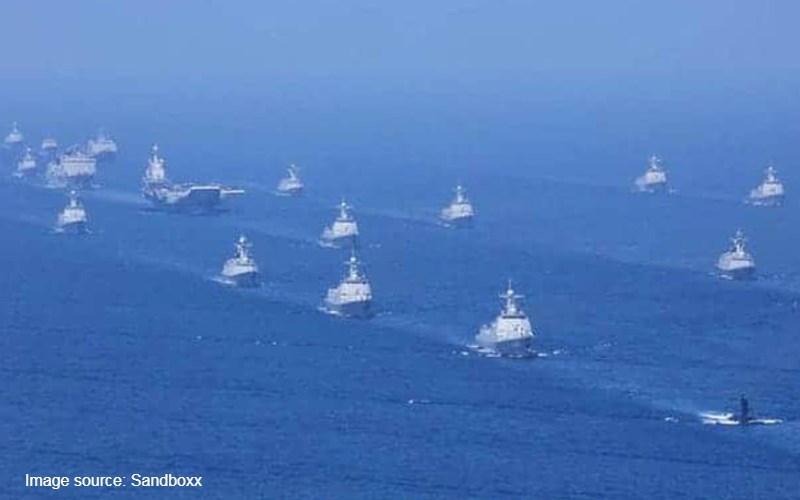Robert Peters, a former strategist and advisor at the Department of Defense, is currently a research fellow at The Heritage Foundation and its Allison Center for National Security.
Peters and Heritage are calling for a new national defense strategy in a new report called the “Prioritization Imperative.” As its name implies, the report calls for defending the U.S. homeland by prioritizing U.S. military commitments around the globe.
Among his many concerns, Peters tells AFN one main concern is the lack of U.S. naval assets in the Pacific Ocean that would help deter China’s aggressive plans to control the Indo-Pacific region.
 In open competition with the U.S. Navy, China now has the largest naval fleet in the world after overtaking the U.S. in shipbuilding in the last two years. China’s navy, called the People’s Liberation Army Navy, is estimated to have 370 ships compared to about 290 in the U.S. Navy.
In open competition with the U.S. Navy, China now has the largest naval fleet in the world after overtaking the U.S. in shipbuilding in the last two years. China’s navy, called the People’s Liberation Army Navy, is estimated to have 370 ships compared to about 290 in the U.S. Navy.
With the Pentagon and Capitol Hill debating strategies going forward, Peters says China’s influence should be an ongoing topic in Washington, D.C.
 “What we advocate is, because we're overextended and under resourced, until those things are fixed, until we get the resources that we need,” Peters advises, “we need to focus on the application of military capabilities on the Western Pacific to deter war with China."
“What we advocate is, because we're overextended and under resourced, until those things are fixed, until we get the resources that we need,” Peters advises, “we need to focus on the application of military capabilities on the Western Pacific to deter war with China."
A key phrase in the Heritage report is “key region,” meaning an area of the globe that would hurt U.S. interests if it is controlled by a foreign rival. Those regions include the Indo-Pacific, Europe, and the Middle East, but the report warns China’s plans for control affects 10 major seaports and 60% of global trade and shipping.
“Military power will be key in any effort to deny China’s imperial ambitions,” the Heritage report warns. “If Beijing can use force to dominate its neighbors, it is very likely to do so, and they will have little choice but to acquiesce.”
Peters co-authored the report with national defense analyst Alex Velez-Green, who studied China closely as a national security advisor on Capitol Hill.







